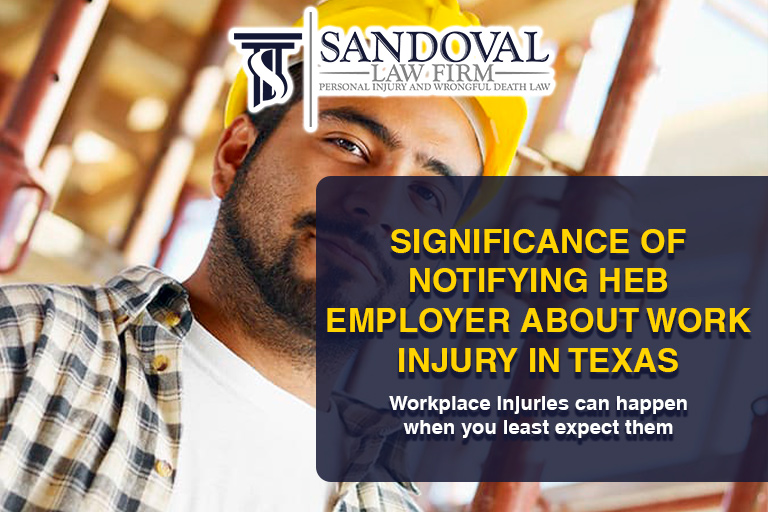The Crucial Importance of Reporting Work Injuries to Your HEB Employer in Texas
Workplace injuries can happen when you least expect them, and when they do, swift action is essential. If you’re an employee at HEB in Texas and you’ve suffered a work-related injury, it’s crucial to understand the importance of promptly notifying your employer about the incident. In this article, we’ll delve into the reasons why reporting a work injury to your HEB employer in Texas is of utmost significance, both for your well-being and your legal rights.
1. Timely Medical Attention:
One of the primary reasons for reporting a work injury promptly is to ensure that you receive timely medical attention. Your employer needs to be aware of the incident to facilitate the necessary medical treatment and evaluation. The sooner your injury is documented and treated, the better your chances of a successful recovery.
2. Protection of Your Health:
Prompt reporting also safeguards your health. Some injuries may not seem severe initially but could worsen over time. By reporting the injury promptly, you prevent it from becoming a more serious health issue that could have long-term consequences.
3. Compliance with the Texas Law:
In Texas, reporting work injuries is not just a recommendation; it’s a legal requirement. Failing to report an injury promptly can lead to complications in receiving workers’ compensation benefits. Texas law generally requires injured workers to report injuries to their employers within 30 days, but it’s best to report it as soon as possible to avoid potential disputes.
4. Eligibility for Workers’ Compensation:
Reporting a work injury promptly is crucial to your eligibility for workers’ compensation benefits. Workers’ compensation provides essential financial support, covering medical expenses and lost wages in the event of a work-related injury. To qualify for these benefits, you must report the injury within the stipulated time frame.
5. Preserving Evidence:
Swift reporting helps preserve critical evidence related to your injury. This evidence can be invaluable if your injury claim ever becomes disputed. It ensures there is a clear record of the incident, the nature of the injury, and any potential witnesses.
6. Preventing Retaliation:
Employees often worry about potential retaliation for reporting injuries. Texas law provides protection against employer retaliation for reporting workplace injuries. By promptly notifying your employer, you establish a clear timeline and strengthen your protection against any wrongful actions.
7. Insurance Coverage:
Reporting an injury to your employer is necessary for them to notify their workers’ compensation insurance carrier. This is a crucial step in initiating the claims process and ensuring that your medical bills and lost wages are covered.
Secure your eligibility for essential workers’ compensation benefits
In Texas, reporting a work injury to your HEB employer isn’t just a matter of good practice—it’s a legal requirement with far-reaching implications. Under Texas law, by reporting your injury promptly, you prioritize your health, comply with the law, and secure your eligibility for essential workers’ compensation benefits. Remember that timely reporting also protects your legal rights and ensures that you receive the support and care you need to recover from a work-related injury.









